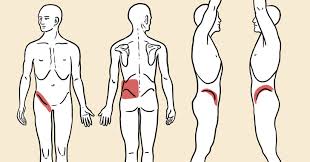Source: doctor.ndtv.com
Signs and symptoms of kidney stones: Drinking enough water is the best way to prevent kidney stones. Once the stone starts moving there are few symptoms one may experience.
Kidney stones are quite painful. These stones vary in size. Kidney stones are very common. If the stones are smaller in size you may not experience any symptoms. Most stones pass without treatment while some may need medicines or even surgical removal. Drinking enough water is the best way to prevent kidney stones. Once the stone starts moving there are few symptoms one may experience. You should not ignore the symptoms of kidney stones and seek medical help on time. Certain tests can help determine the size or location of the stone. Here are some signs and symptoms of kidney stones you must know.
Signs and symptoms of kidney stones
1. Pain around the kidneys
Pain is the most common symptom of kidney stones which many are aware of. Some may experience severe pain. This usually happens when the stone moves into the narrow ureter. You may feel the pain along your side and back, below the ribs.
2. Urination more than often
Someone with kidney stones may feel an urgent need to pee. This happens when the stone has moved into the lower part of the urinary tract. If you also experience a persistent urge to pee both day and night then it may be a sign of kidney stones.
You may experience urgent need to pee due to kidney stones
Photo Credit: iStock
3. Nausea and stomach pain
There can be several reasons behind stomach pain and nausea. Kidney stones can be one of the possible reasons. If you experience other symptoms with nausea and vomiting then it can be due to kidney stones.
4. Fever and chills
Another common symptom of kidney stones is fever. Along with fever, you may also experience chills. This can happen due to infections in your kidneys. But fever and chills can be signs of other medical issues as well. Do not ignore if the temperature is too high.
You may notice changes in urine due to kidney stones. Cloudy or foul-smelling urine could be a sign of kidney stones. This happens due to infection in your kidneys or any other part of the urinary tract.
Disclaimer: This content including advice provides generic information only. It is in no way a substitute for qualified medical opinion. Always consult a specialist or your own doctor for more information. NDTV does not claim responsibility for this information.
